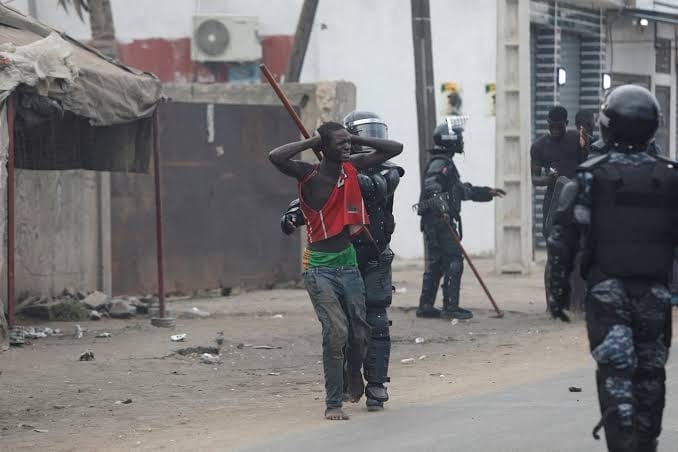Senegal reopens path to justice as parliament lifts amnesty for deadly protest crimes
Senegal’s parliament has voted to lift amnesty protections for serious crimes committed during the deadly 2021–2024 protests, potentially reopening investigations into the deaths of dozens of demonstrators.

File Source: X
In a dramatic reversal aimed at addressing long-standing demands for accountability, Senegal’s parliament has voted to lift amnesty protections for serious crimes committed during the deadly 2021–2024 protests, potentially reopening investigations into the deaths of dozens of demonstrators.

The revised measure, passed late Wednesday by a vote of 126 to 20, stops short of repealing the controversial March 2024 amnesty law enacted by former President Macky Sall. However, it strips immunity for specific grave offences — including murder, torture, and enforced disappearances — committed during some of the most violent unrest Senegal has witnessed since independence.
“Those guilty of serious crimes will be held accountable for their actions,” said Oumar Sy, a member of the ruling Pastef party, during Wednesday’s heated debate.
The original amnesty, introduced amid political upheaval, had shielded both security forces and protesters from prosecution over the unrest that rocked the country. The protests were sparked by widespread accusations that Sall was attempting to sideline opposition voices and extend his stay in power — claims he denied. The situation escalated sharply following the 2023 arrest of opposition figure Ousmane Sonko, now Senegal’s prime minister.
Rights organizations estimate at least 65 people were killed during the crackdown, mostly by gunfire. Witnesses at the time reported seeing security forces firing into crowds, though the government and military have consistently denied wrongdoing.
Human rights groups and bereaved families had fiercely criticized the amnesty, arguing it denied justice for victims and allowed perpetrators to walk free. The revised law has been widely welcomed by civil society advocates, though critics warn it remains too lenient toward violent demonstrators.
“The proposed amendment before us is unfair and unacceptable,” said opposition MP Alassane Sall, who argued the law disproportionately favors government allies and protest leaders.
The move comes under the leadership of newly elected President Bassirou Diomaye Faye, a former political prisoner himself, signaling a potential shift toward accountability and reconciliation. Both Faye and Sonko were released after the original law took effect, amid growing calls to reset the nation’s democratic trajectory.
Whether the latest legal revision will lead to meaningful prosecutions — or satisfy victims’ families — remains to be seen. But it marks a significant departure from the impunity that once shrouded Senegal’s most turbulent political chapter in recent memory.














